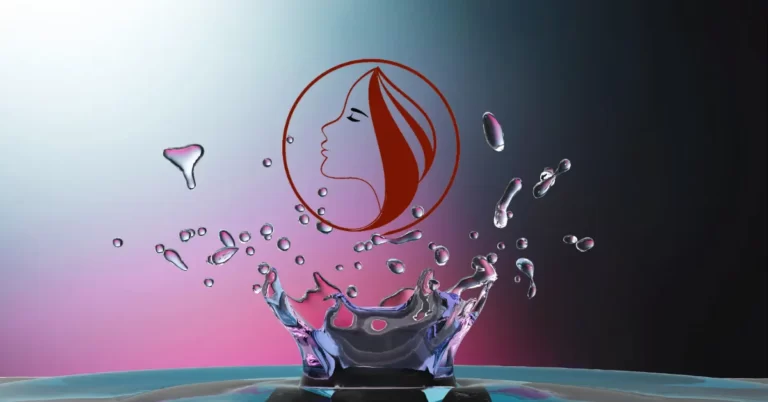
© Copyright 2022 HerGlance. All right reserved.
It turns out that as for most things, science has the answer to the question of why is water calming to us and it feels so damn good.
Many people think that diving into deep water provides an adrenaline rush, but it turns out it’s quite opposite as many experts have said that diving into water heart rate slows and certain blood vessels constrict.
Blood is redistributed from the limbs to the brain, heart, and other central organs.
This results in elements of the sympathetic nervous system and our body’s fight or flight response reducing to its minimum. The calmness we feel when diving is the result of this reaction from our body and it feels amazing!

These physiological modifications are known as the human “dive reaction” or “dive reflex.” The diving reflex was initially noticed in marine animals such as seals and is considered to aid the mammalian body in conserving oxygen while underwater.
The diving reflex is most apparent in infants, virtually all of whom automatically hold their breath and reduce their heart rates when immersed in water. (Blowing air on a wailing infant’s face typically triggers the diving response, which helps calm the baby.)
As the dive reflex in our body is so strong many doctors have used it to help patients with panic attacks.
Now you must be thinking about what they did to him. Throw him into the ocean? Well NO, of course not that would be very very unprofessional of them. 😊
They told the patient to hold his breath for 15 seconds and to drive his head into the water.
This method is being researched by many experts and they are trying to implement it into therapy to prevent strokes and anxiety.


That is one of the longest book titles you will ever see, but it does an excellent job of describing some of the established advantages of living near water. It’s also one of the few books on the subject.
The author makes several fascinating observations based on his expertise as a marine scientist as well as further scientifically supported studies he conducted.
Wallace demonstrates in the book that gazing at or being near water may give a variety of health advantages. These advantages include less stress and anxiety, increased happiness, decreased heart rate, and additional advantages that go beyond simply feeling calmer.
He refers to this as the “blue mind” effect and claims it is a reaction we get when we see water. His book delves into the various reasons why water has this effect on us. Here are two crucial concepts.
Water is calming us but it is also a source of our life. What would we do without it!? It covers more than 70% of the Earth’s surface, our bodies are over 70% water, and water makes up more than 70% of two of our most critical organs (our brain and heart).
According to Wallace, the sight or sound of water causes the release of calming neurochemicals in the majority of people.
Due to our need for water as a source of life, there is a profound biochemical link between our brains and the sight of water.
When a supply of water is out of sight or hearing distance, the human brain may get anxious. Some evolutionary scientists have even speculated, controversially, that for significant periods of our species’ history, humans may have spent significant amounts of time inside and near water, which some have pointed to as a clarification for our lack of body hair and other water-friendly anatomical features.
(This is referred to as the “aquatic ape theory.”)
Nichols also mentions that, like woods and other natural places, bodies of water have features that might be thought of as the inverse of those aspects of modern life that stress people out. “By that, I mean, first and foremost, technology and displays,” he explains. “Water removes distractions and simplifies the scenery.”
Our body tends to balance all things, water is no exception. Drinking water hydrates your body, which is essential for maintaining homeostasis. Our bodies want to stay within a narrow range. Drinking water helps to keep that range stable.
If you drink too much water and experience feelings of fullness, nausea, or even disgust, this is your body’s way of warning you that you’ve exceeded the just-right range. There is also a sensory explanation. Our bodies have a certain range for all of the sensory information we receive.
A warm bath both warms your body and provides your brain with exactly the perfect amount of sensory information. This is due to the fact that humans prefer to decrease distractions while showering, etc. It’s not just the water; it’s the sense of seclusion, the calming sound of the water, the pressure on your body; all of this helps your body find that just-right range that allows you to relax.

Based on his expertise and study, Nichols believes that individuals should spend more time in and near water, whether it is “wild, domestic, or virtual. If you don’t have access to a beach, a lake, a pool, or another swimmable body of water, he claims that listening to the water, gazing at water photographs, or even having a shower can provide some of the same benefits.
“Just pause and admire it if you cross a river on your way to work,” he advises. “When taking a shower, pay attention to how the water feels on every region of your body.”
There’s a reason you feel so at ease when you go to the beach or near the water. There is water. Science continues to investigate the amazing therapeutic impact that being near water and viewing the water has on our mental health and wellness.
Let’s look at some of the myriad soothing properties of water.
There’s a reason you feel so at ease when you go to the beach or near the water. There is water. Science continues to investigate the amazing therapeutic impact that being near water and viewing the water has on our mental health and wellness.
Let’s look at some of the myriad soothing properties of water.
Flowing water, for example, can generate a form of mild hypnosis or profound relaxation, quickly transporting people to their “happy place”.
Allowing your body to enter a profound state of relaxation will help your mind, body, and spirit. Relaxation is essential for living a healthy, happy life, therefore invest in a small waterfall for your workplace and/or a BellaFontana hot tub. Your body and mind will be grateful!
Found Our Post Helpful? READ MORE

© Copyright 2022 HerGlance. All right reserved.